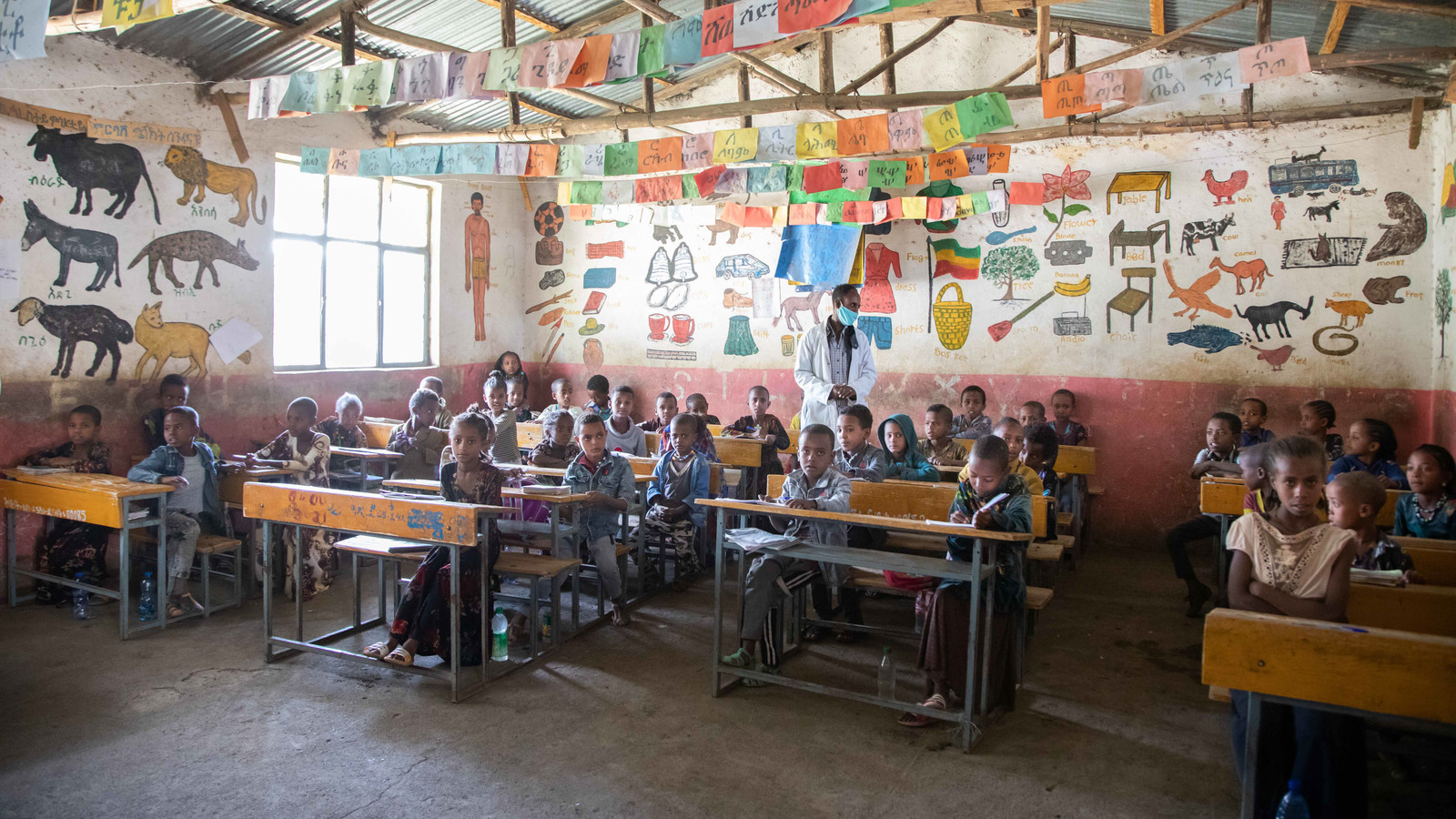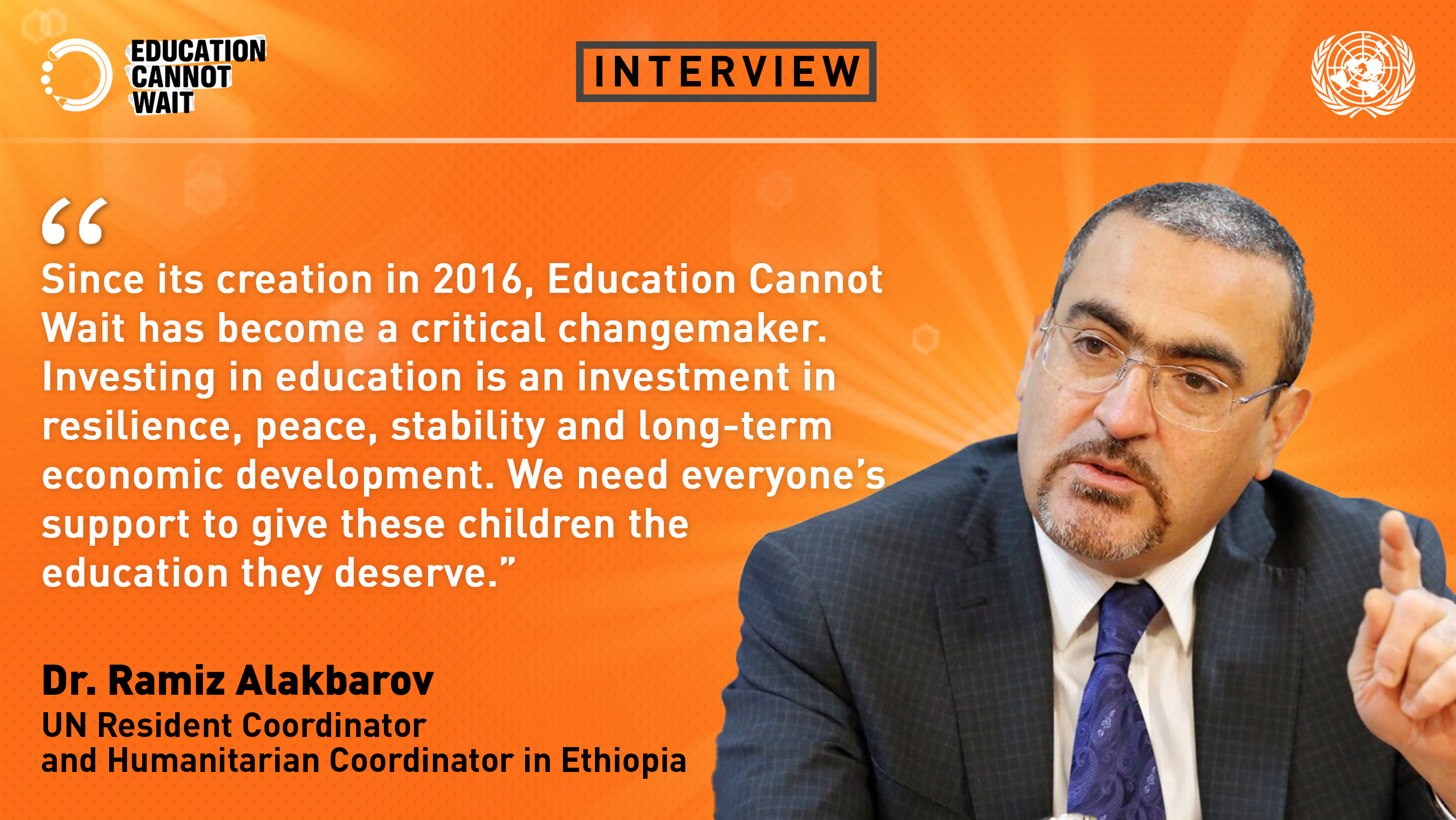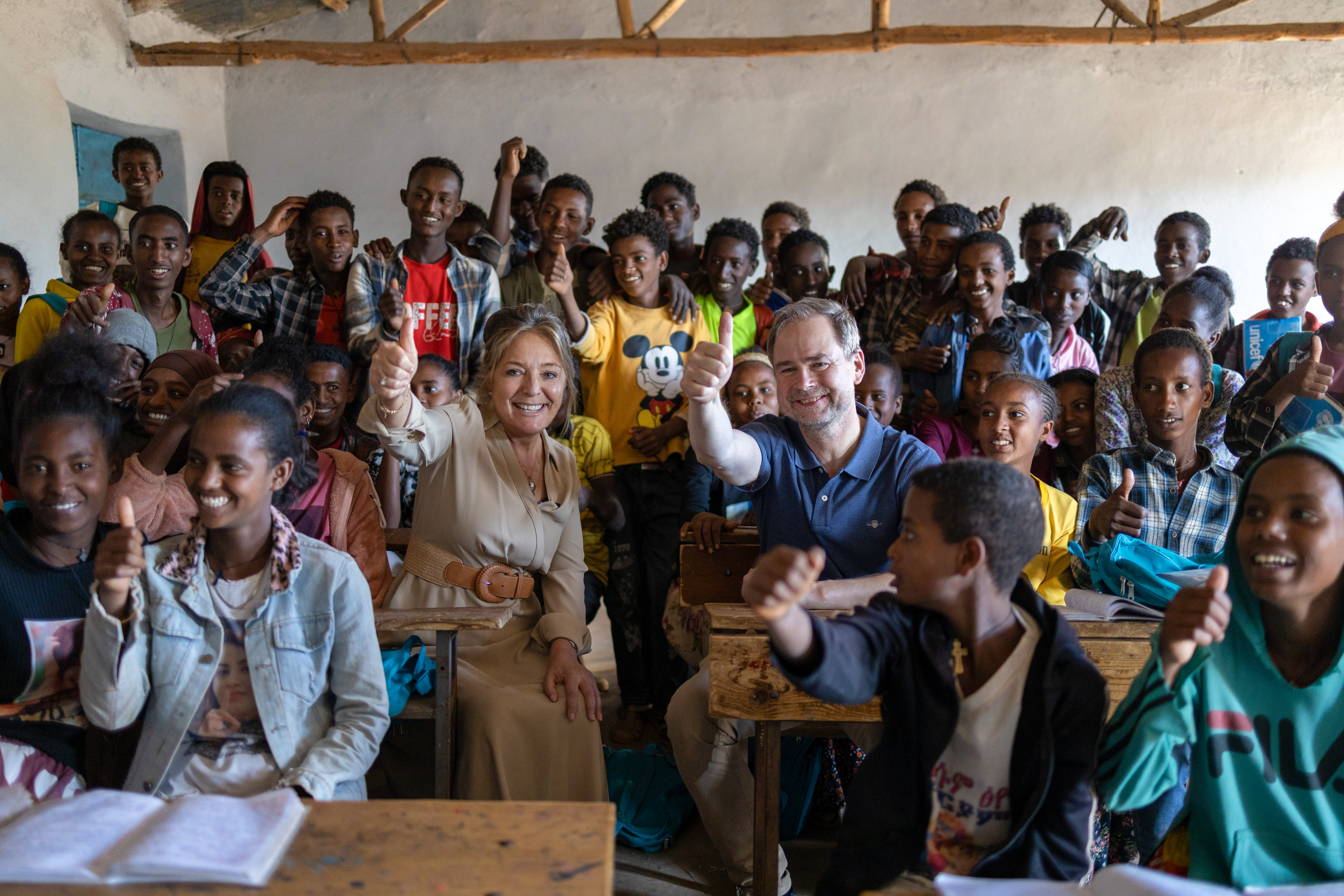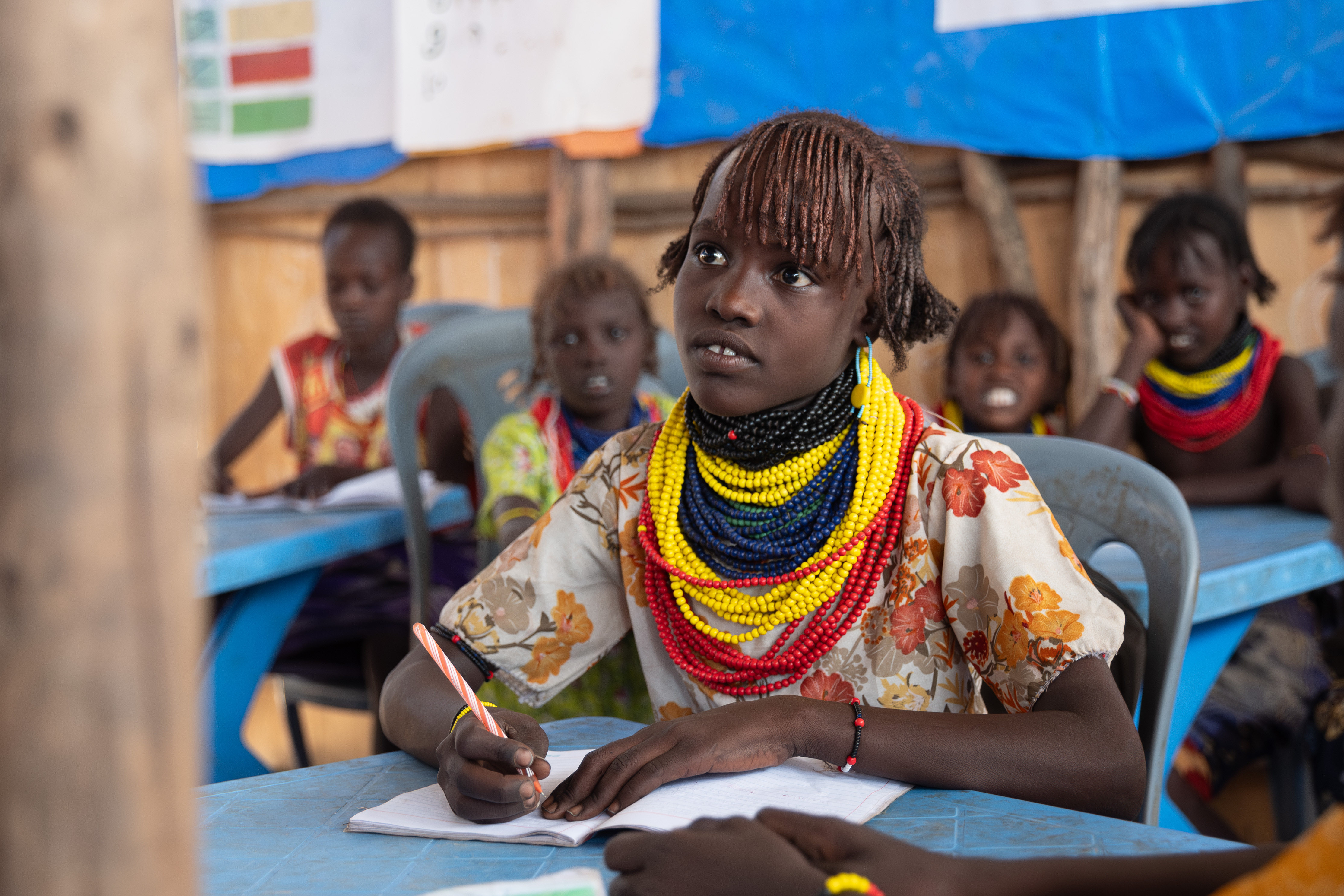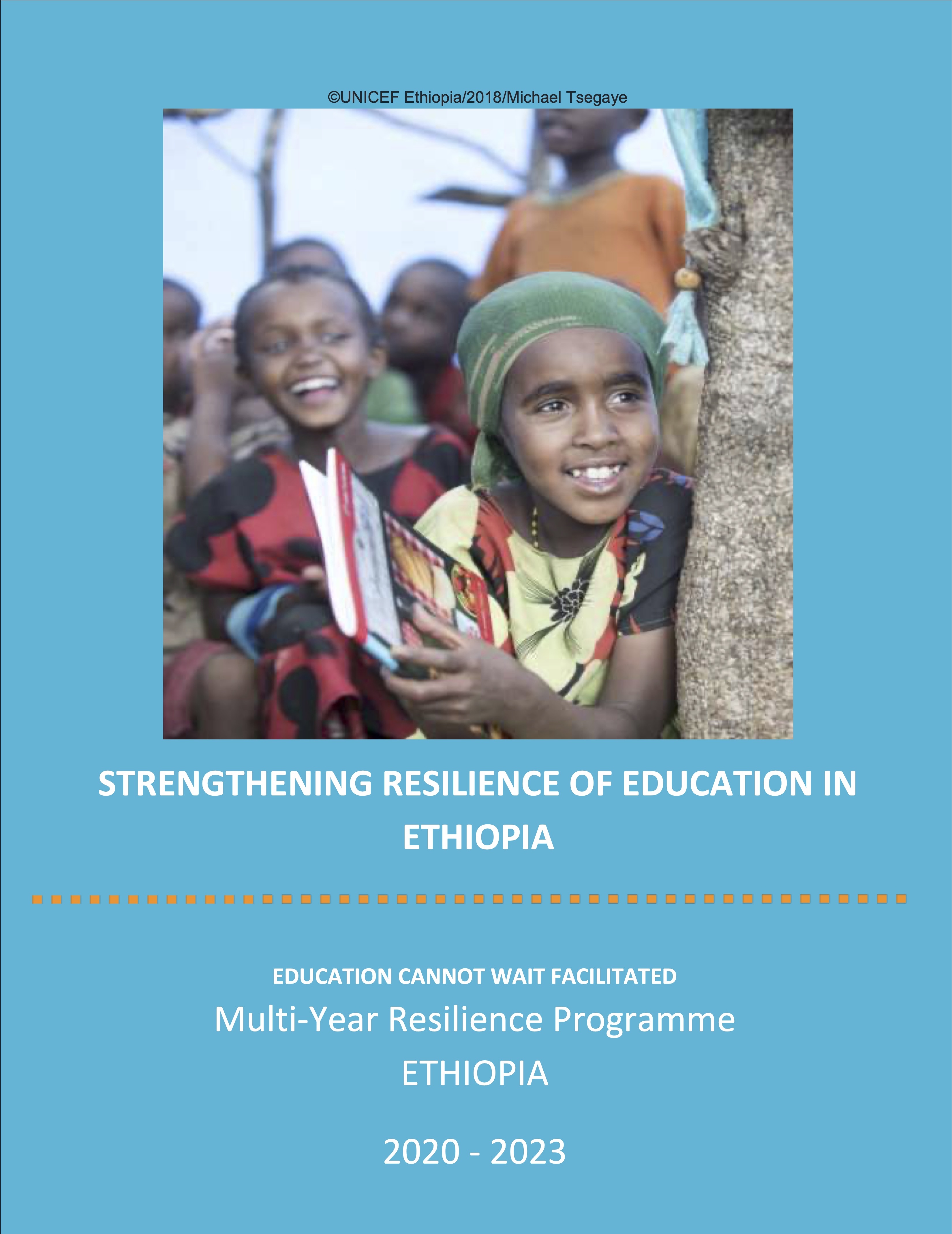ECW in Ethiopia
Ethiopia hosts the third-largest refugee population in Africa. The country is also affected by internal violence, insecurity, poverty, displacement, hunger and malnutrition compounded by the impacts of climate change. These challenges are compromising the education of hundreds of thousands of children. Since 2017, Education Cannot Wait (ECW) has been supporting refugee, internally- displaced and host community children and adolescents with access to safe and inclusive educational opportunities. The aim is to increase enrolment and continuity of education; provide training for teachers; strengthen school infrastructure; and build community support for safe, inclusive, holistic learning environments – with a focus on girls and children with disabilities.
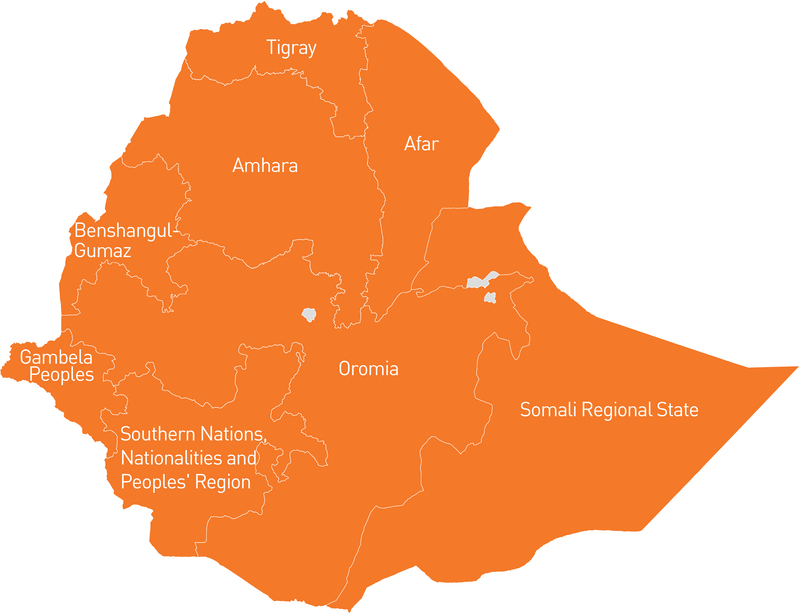
Investments
Financial Information
National Counterparts
Ministry of Education, Agency for Refugee and Returnee Affairs, Regional Education Bureau of Benishangul-Gumuz and Gambella
Results
Additional Results
- Number of children and adolescents supported with school feeding programmes: 60,351
- Number of children benefiting from literacy programmes in targeted schools: 47,219
- Number of teachers/administrators trained in mental health and psychosocial and psychological support topics: 2,306
COVID-19 Results
Programme Info
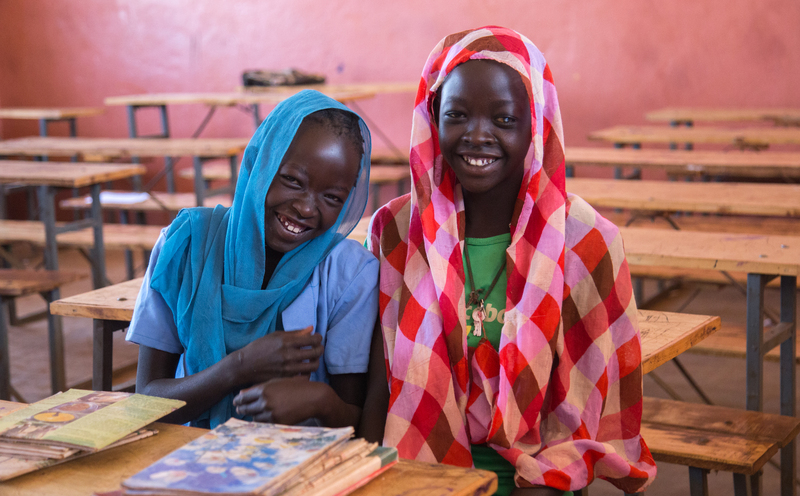
The poor quality of education and barriers to continuity hamper education outcomes. Few children continue their education past primary school, and basic learning outcomes are limited.
ECW’s far-reaching Initial Investment from 2017 to 2020 provided quality school settings, education and teachers to refugee and host community children in the Benishangul-Gumuz and Gambella regions. The education of refugees was incorporated into the national systems, policies, strategies, and programmes. This was agreed upon through the signing of a memorandum by the MoE and the Agency for Refugee and Returnee Affairs. In 2021, further to the completion of the Initial Investment, a new Multi-Year Resilience Programme (MYRP) was immediately launched.
Building on the achievements of the Initial Investment, the MYRP supports the delivery of quality, inclusive education for children affected by emergencies. The programme focuses on addressing the critical educational needs of internally displaced children who are out of school within the Amhara, Oromiya and Somali regions, and improving access for girls and children with disabilities. Furthermore, national and sub-national education systems are funded to plan, finance and implement early childhood education services; and internally displaced children are reached with an enhanced quality of play-based early learning.
Programme Components
- Improving enrolment and participation in schools. Despite the COVID-19 pandemic, school enrolment increased. Namely due to parent involvement in school improvement plans that identify issues of child safety; WASH in schools; and the development of teaching and learning materials. Based on these plans, school grants are provided to primary and secondary schools to address such issues. Participation by parents, teachers and students in the planning process increases their sense of ownership.
- Improving teaching through the training of teachers who are refugees. In coordination with the MoE and Colleges of Teaching Education, their professional development is advanced through accredited in-service training programmes. Teachers and education personnel are trained in learning outcome assessment, with the majority completing their certificate, diploma, or in-service training.
- Increasing community participation towards providing a safe and protective learning environment. Specifically, to raise awareness and increase participation on issues relating to children, especially girls’ education. Extensive engagement campaigns are conducted in refugee and host-community primary schools in targeted regions.
- Increasing continuity of education for conflict-affected girls and boys. Out-of-school children and adolescents – including local, refugee and internally-displaced at the primary, pre-primary, and secondary levels are benefiting from accelerated school-readiness programming.
- Strengthening access through the building and rehabilitation of school infrastructure. In the Benishangul-Gumuz and Gambella regions, primary and secondary schools were built to improve access to education for refugee and host community children. ECW supports the construction of primary classrooms and inclusive secondary schools, along with the expansion of additional schools, in both regions. Building of safe latrines, including latrines for girls with provisions for menstrual hygiene management (MHM), ensures the protection of students. Water systems and water tanks are also being rehabilitated at primary schools for refugees.
- Strengthening national systems. The MYRP facilitated a Memorandum of Understanding (MOU) between the Regional Education Bureau and the Agency for Refugee and Returnees Affairs, to strengthen coordination between the two agencies. The programme also supports the collection of preliminary data on the qualifications of teachers who are refugees themselves and an assessment of their needs.
For more information on ECW's work in Ethiopia, please contact Country Lead Dianah Nelsen (dnelson@unicef.org) and Eddie Dutton (rdutton@unicef.org).

